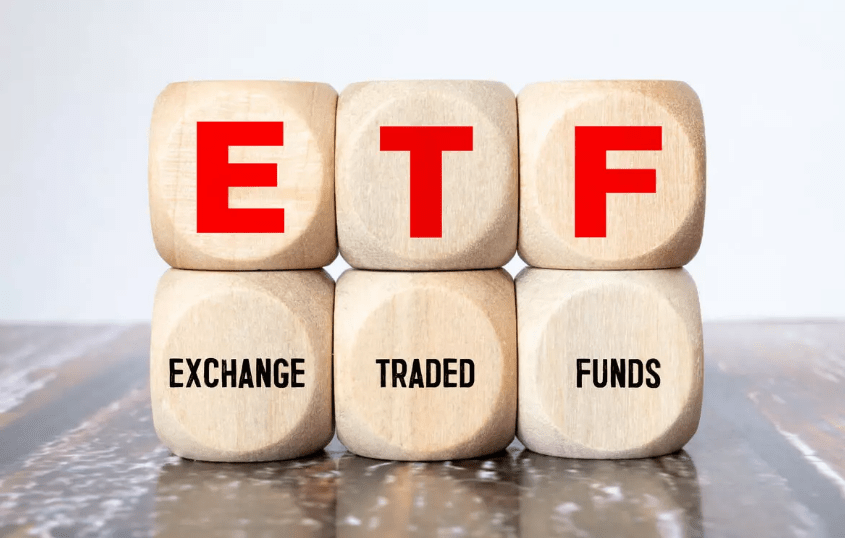Cryptocurrencies such as Bitcoin, Ethereum, and Dogecoin have been making headlines worldwide for several months. An incredible amount of new crypto ETFs have been launched to make it easier for investors to buy cryptocurrencies without the headaches of security issues and the complexity of setting up and managing portfolios and cryptographic keys.
Cryptocurrencies have risen from obscurity and are now part of many personal and professional wallets. But where do new crypto ETFs fit in, and where can investors find the right ones? Let’s take a closer look.
Which cryptocurrencies can be purchased as ETFs?
Given that Bitcoin is the largest, most liquid, and most well-known cryptocurrency, it’s no surprise that most crypto ETFs have taken the option to track it. However, as the industry grows, issuers are offering ETFs exposed to the prices of the following cryptocurrencies: Ethereum, Ripple, Bitcoin Cash, Binance coin, Tezos, Polkadot, Litecoin, Cardano, Stellar, NEO, EOS, and Cosmos. Other cryptocurrencies will likely be added to this list if demand remains high.
Two ETFs offer exposure to a diverse basket of crypto assets, meaning investors can gain exposure to the sector without betting on a specific cryptocurrency.
But what is the difference between investing in cryptocurrencies via an ETF and investing directly in cryptocurrency?
What are the advantages of crypto ETFs?
- AN EASIER WAY TO INVEST
Crypto ETFs can be purchased, held, and sold utilizing an ordinary money market fund.
For example, unlike investing directly in EFTs Bitcoin, investors do not need to create a cryptocurrency portfolio or trade on unregulated cryptocurrency exchanges. Brokers and banks already offer access to ETFs to millions of investors, which means there are no extra steps to add cryptocurrencies to your portfolio.
- DEAL WITH COMPANIES YOU TRUST
Crypto ETFs are issued by regulated companies that trade on regulated markets, allowing you to invest with confidence, knowing that all parties involved have been vetted and their transactions are monitored to prevent abuse. Market or the financing of illegal activities. This would not be the case if investors used one of the many unregulated offshore cryptocurrency exchanges, apps, or platforms.
With their investment physically backed and held by regulated entities, Bitcoin ETFs help mitigate the risk of fraud and avoid the risk of scandal, meltdowns, hacks, and failures associated with unregulated crypto exchanges.
- NO RISK OF LOSING YOUR WALLET
There have been many unfortunate stories of investors losing the key to their Bitcoin wallet and finding themselves unable to access thousands or even millions of dollars.
An added benefit of ETFs is that there is no risk of losing your key and suddenly being unable to access your wallet. The authorized participant handles buying, storing, and selling ETF-backed cryptocurrencies. The ETF is stored in your brokerage account like a regular stock.
The disadvantages of crypto ETFs
That doesn’t mean investors shouldn’t exercise caution with crypto ETFs. Bitcoin and other crypto assets were designed as currencies, not primarily as investment assets. They can be highly volatile, and it is often difficult to assess their fair value. Here are some disadvantages of using a crypto ETF compared to buying directly on a crypto exchange.
- REPLICATION ISN’T ALWAYS PERFECT
Some ETFs directly hold Bitcoin, Ethereum, or other physical cryptocurrencies. Others will replicate the asset synthetically through derivatives. Different structures will give different results in replication, and movements in the price of the cryptocurrency will only sometimes be accurately reflected in the price of the ETF.
- CRYPTO ETFS HAVE ADDITIONAL COSTS
ETFs have costs that investors would not bear if they chose to invest directly in cryptocurrencies. Overall ownership costs include transaction costs (the cost of trading ETF shares) and management fees (the cost of holding ETF shares). Crypto ETF fees can be high and often increase by 2% yearly. In the long run, these fees will reduce returns compared to owning cryptocurrency directly.
- YOU CAN’T BUY ANYTHING WITH A CRYPTO ETF
Suppose you hold Bitcoin or other cryptocurrencies directly. In that case, you can use them like regular currency to buy goods or make payments. You can also benefit from an increase in value depending on your local currency. When you buy a crypto ETF, you cannot use the currency to make (or receive) payments; you can only profit from favorable price changes.

Guide to ETF Bitcoin
Let’s start with the most important and well-known cryptocurrency. We observe a competitive market with 14 funds available worldwide. For once, the US woke up late, which means European investors have a much more comprehensive range of choices than their transatlantic counterparts.
PRIX
Bitcoin ETFs are at the very high end of the price spectrum. Nevertheless, there is a significant difference in the fees charged by different issuers, which will ultimately reduce the investor’s returns.
The cheapest crypto ETF we track is the Canadian-listed Bitcoin Galaxy ETF (BTCG) which charges an annual fee of 40 bp (equivalent to $4 for every $1,000 invested). The Bitcoin ETF is at the other end of the scale, with the highest annual fee of 250 bps (equivalent to $25 for every $1,000 invested).
You invest in getting rich, so you might be tempted to invest in the ETF with the lowest fees. However, lower fees do not automatically mean that the ETF will have a higher return. When comparing an ETF with similar funds, look at the return net of fees (or performance spread).
CUT
Although the liquidity of an ETF is directly related to the liquidity of the underlying asset class, the size of a fund can be an essential consideration for investors. More considerable ETFs trade in higher volumes more frequently than similar smaller funds.
The most important Bitcoin ETF in Europe is also the oldest, namely the Coinshares Bitcoin Tracker ETC. However, the most recent, BTCEetc Bitcoin Exchange Traded Crypto ETC (BTCE), which was launched in mid-2020, saw its assets increase. The landscape will undoubtedly continue to evolve in the years to come.
Canadian investors had to wait until 2021 to get their first Bitcoin ETF, created by Purpose Investments, meaning the market needed more time to gather assets. The largest existing Bitcoin ETF in the region is the Purpose Bitcoin ETF CAD, with $718 million in assets.
OTHER CRYPTO ETFS
Let’s leave bitcoin aside and look at the issuer 21Shares, the leader in other crypto-currencies. If you want to put crypto assets in your brokerage account, 21Shares offers you 8 of 11 non-Bitcoin crypto ETFs.
Assets and flows are remarkable here too. Some recently tracked crypto assets have made a name for themselves with exponential prices, liquidity, and growing market capitalization. This is the case of CoinShare’s Ether Tracker ETC, which has already reached the level of Bitcoin ETFs with assets reaching $1.8 billion.
21Shares also offers two diverse crypto baskets that track a combination of 5-10 different cryptocurrencies. This can represent diversification for investors who wish to refrain from taking concentrated bets on a single cryptocurrency.
ACTIVELY MANAGED CRYPTO ETFS
Now let’s follow an actively managed crypto ETF, the FICAS Active Cryoti ETP (BTCA), which can hold any combination of the top 15 crypto assets (according to their datasheet). However, this product does not offer daily transparency on the cryptocurrencies to which it is exposed, nor in what proportions, it is exposed. Investors should also be aware that this ETF has a hedge fund-like pricing structure of a 200bp annual fee and a 2,000bp performance fee
Above a certain threshold. As with all active strategies, careful consideration of the manager’s investment strategy will be required when choosing this strategy over another.
What is the future for crypto ETFs?
The landscape is changing so rapidly that it is difficult to predict the direction of the crypto ETF market. Having started from nothing, it is an industry that today represents more than 9 billion dollars, and this, in just a few years. This segment has become a significant growth driver for the ETF industry.
North America is starting with the first Bitcoin ETF listing in Canada in early 2021. It would be reasonable to expect a wider variety of cryptocurrencies to be available to northern investors. Americans in the future, even though high-profile crypto assets like Dogecoin are still not tracked by an ETF. This would open the way for other issuers to create a new offer.
Considering the current trend of investing in non-transparent active ETFs (ANT), this presents a massive opportunity for active managers to prove their ability to manage this nascent asset class. This means more baskets and crypto strategies will be available in the market.
Still, reputable issuers need to enter the crypto market. However, as the market matures and crypto assets become more accepted as transaction currencies and investment products, it will be difficult to resist the appeal of high fees.
Anything you consider the future, crypto ETFs are setting down deep roots. Tomorrow’s landscape is becoming denser, more competitive, and more complex. Investors will have to do more research to select the right product. With comprehensive data on the global crypto ETF universe, TrackInsight provides the tools and information to help them in their research.
